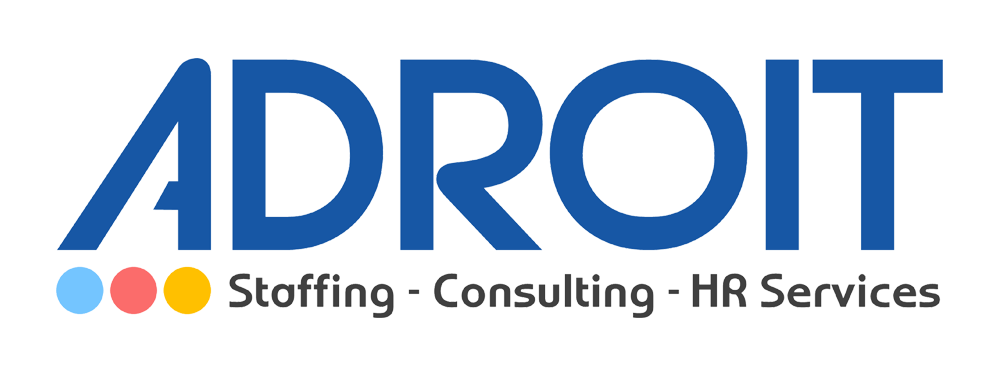Introduction
Human Resources (HR) has always played a pivotal role in any organization, but with the ever-evolving workplace dynamics, the skills required for HR professionals have also transformed. The modern HR professional needs to be agile, tech-savvy, and capable of managing a diverse range of responsibilities. As businesses increasingly focus on employee well-being, organizational development, and strategic planning, HR professionals must possess a versatile skill set to drive success. In this blog, we’ll explore the essential HR skills required for the modern HR professional to thrive in today’s fast-paced and dynamic business environment.
1. Strategic Thinking
HR is no longer just about managing payroll and handling employee disputes. Today, HR professionals are seen as strategic partners who contribute to business growth by aligning talent management practices with organizational goals.
- Why It’s Important: Strategic thinking helps HR professionals anticipate business needs and proactively address potential talent shortages or skill gaps.
- How to Develop It: Gain a deep understanding of the business, its goals, and industry trends. Collaborate with leadership teams to align HR practices with business objectives.
2. Data-Driven Decision-Making
In today’s data-rich environment, HR professionals must be able to collect, analyze, and leverage data to make informed decisions. From hiring trends to employee performance, data can guide HR practices and improve outcomes.
- Why It’s Important: Data-driven decision-making allows HR professionals to make objective, evidence-based decisions that improve employee engagement, reduce turnover, and optimize recruitment efforts.
- How to Develop It: Familiarize yourself with HR analytics tools and learn how to interpret data such as employee satisfaction surveys, performance reviews, and retention rates.
3. Employee Engagement & Retention
Keeping employees engaged and committed to the organization is crucial for long-term success. HR professionals must develop strategies to foster a positive work environment that nurtures employee satisfaction and loyalty.
- Why It’s Important: High employee engagement leads to increased productivity, reduced turnover, and enhanced company culture.
- How to Develop It: Create and implement engagement programs such as regular feedback sessions, recognition initiatives, and career development opportunities. Listen to employees’ concerns and act on them.
4. Communication Skills
Effective communication is at the heart of HR management. Whether it’s delivering difficult news, negotiating with candidates, or facilitating team-building activities, clear and empathetic communication is essential.
- Why It’s Important: Strong communication skills ensure that HR professionals can effectively convey information, manage conflicts, and build trust across all levels of the organization.
- How to Develop It: Practice active listening, learn how to tailor your message to different audiences, and develop both verbal and written communication skills.
5. Adaptability and Flexibility
The workplace is constantly evolving, and HR professionals need to stay adaptable to changes in technology, policies, and business needs. From embracing new HR technologies to navigating shifting employee expectations, adaptability is key to success.
- Why It’s Important: In a constantly changing environment, HR professionals must be flexible enough to adapt to new tools, trends, and business goals while remaining focused on the overall mission.
- How to Develop It: Stay up-to-date with the latest HR trends, tools, and technologies. Participate in workshops, webinars, and networking events to continuously learn and grow.
6. Emotional Intelligence (EI)
Emotional Intelligence (EI) is the ability to recognize, understand, and manage one’s own emotions as well as the emotions of others. It’s a vital skill for HR professionals, as it helps in handling sensitive situations, resolving conflicts, and fostering healthy workplace relationships.
- Why It’s Important: EI enables HR professionals to connect with employees, manage workplace conflicts, and create a supportive environment where people feel valued.
- How to Develop It: Work on self-awareness, empathy, and emotional regulation. Engage in conversations that help you understand employees’ emotional needs and provide appropriate support.
7. Legal Compliance Knowledge
Staying updated with employment laws and regulations is critical for any HR professional. Non-compliance can lead to legal issues, fines, and damage to the company’s reputation.
- Why It’s Important: A strong knowledge of labor laws, HR compliance, and workplace safety regulations ensures that your organization remains compliant with legal requirements and avoids potential lawsuits.
- How to Develop It: Regularly attend compliance training, read up on labor laws, and consult legal experts when necessary to ensure that HR policies and practices are in line with current regulations.
8. Tech-Savviness
With HR technology constantly advancing, HR professionals must be familiar with a range of tools, from HRMS (Human Resource Management Systems) to recruitment platforms and performance management software.
- Why It’s Important: Technology streamlines HR processes, improves efficiency, and provides real-time data for decision-making. Being tech-savvy allows HR professionals to work smarter, not harder.
- How to Develop It: Stay updated with the latest HR tech solutions and invest time in mastering tools that enhance HR practices such as applicant tracking systems (ATS), payroll software, and employee engagement platforms.
9. Conflict Resolution
Conflicts are inevitable in any workplace, but HR professionals play a crucial role in resolving disputes and maintaining a harmonious work environment.
- Why It’s Important: Conflict resolution skills help address workplace issues swiftly, prevent escalation, and maintain employee morale.
- How to Develop It: Learn various conflict resolution strategies such as mediation, active listening, and negotiation techniques. Create a clear process for resolving employee grievances.
10. Talent Acquisition and Retention
Recruiting top talent and retaining valuable employees is one of the most important responsibilities of HR professionals. You need to develop an in-depth understanding of recruitment processes and employee retention strategies.
- Why It’s Important: Attracting and retaining top talent is crucial for business success, and HR professionals are responsible for ensuring the right people are in the right roles.
- How to Develop It: Invest in recruitment marketing, refine your interview techniques, and develop strategies for employee retention, including competitive benefits, career advancement opportunities, and work-life balance initiatives.
Conclusion
The role of HR professionals has evolved significantly in recent years, requiring a diverse and adaptive skill set. From strategic thinking and data-driven decision-making to emotional intelligence and legal compliance, today’s HR professionals need to be versatile, tech-savvy, and proactive in supporting both organizational growth and employee well-being. By focusing on developing these essential HR skills, you’ll not only contribute to the success of your organization but also position yourself as a valuable and forward-thinking HR leader.

